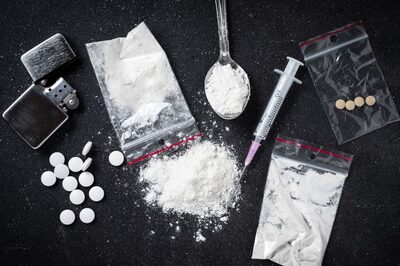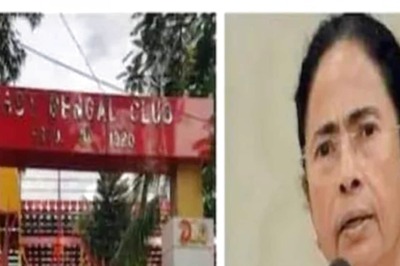
views
Several commonly used medicines — including calcium, folic acid, multivitamins, antibiotics, anti-diabetic, and cardiovascular — have been flagged for failing quality tests in the latest drug safety alert issued by the country’s apex health regulator in March.
The monthly list, issued by the Central Drugs Standard Control Organisation (CDSCO) on its website, has flagged 48 medicine batches failing the quality parameters in the month of March out of the total 1,497 samples tested — reflecting a failure rate of over three per cent.
The list includes medicines, medical devices or cosmetics which are either not of standard quality or spurious, adulterated or misbranded. However, the flagged products were declared not of standard quality or NSQ.
Top-selling medicines such as epilepsy drug Gabapentin, hypertension drug Telmisartan, anti-diabetes drug combination Glimepiride and Metformin and HIV drug Ritonavir are part of the drug alert. It also includes the popular hypertension drug Telma — which includes Telmisartan and Amlodipine.
Other commonly used medicines flagged include iron and folic acid tablets, probiotics and several multivitamin pills. It also includes Vitamin C, Vitamin B12, Folic Acid and Niacinamide injections.
These drugs are manufactured by private as well as public drug makers, including PSU Karnataka Antibiotics & Pharmaceuticals, Uttarakhand-based Synokem Pharmaceuticals, Haryana-based Nestor Pharmaceuticals, Uttar Pradesh-based JBJM Parenterals, Solan-based Ronam Healthcare and Mumbai based Glenmark Pharmaceuticals.
Reacting to the development, a Glenmark spokesperson said: “We have investigated the matter and found that the TELMA AM Tablets (Telmisartan 40 mg and Amlodipine 5 mg Tablets IP) batch number 18220076 from the NSQ list of “March 2023 Month Drugs Alert” are counterfeit medicines and have not been manufactured by Glenmark. We have requested the CDSCO to take action on this and also made an appeal for removal of the product from the drug alert list. As a responsible manufacturer, we have provided proactive information and leads to all concerned regulatory officials from time to time. Additionally, we have taken the necessary measures, which include engaging an external agency to investigate the presence of counterfeit drugs across the country.”
According to industry experts, once the drug features in the list — along with the batch number, manufacturing date and expiry date — the company recalls the entire batch. “After the recall, the entire batch has to be destroyed,” an industry veteran said.
Not-of-standard quality (NSQ) drugs can adversely impact the quality of treatment and cause harm to patients, besides contributing to the emergence of drug resistance and spread of the disease.
The alerts are used by the government to seek cues and conduct investigations at manufacturing units which are frequently failing quality checks.
The Ministry of Health and Family Welfare is already conducting massive nation-wide audits and raids at several drug manufacturing units to fix the gaps in good manufacturing practices.
In another move, in March, the central government cracked the whip on more than 70 drug makers for manufacturing spurious or lower-quality medicines in India, cancelling the licenses of 18 manufacturers. The government raided drug makers in 20 states across India after identifying 203 pharmaceutical companies.
Both the moves have been driven by multiple allegations levelled by importers of Indian medicines, including Uzbekistan, Gambia and the United States. Since October last year, India has been facing allegations of exporting spurious quality drugs, raising concerns of denting the decades-old reputation of “pharmacy to the world”.
Read all the Latest India News here




















Comments
0 comment